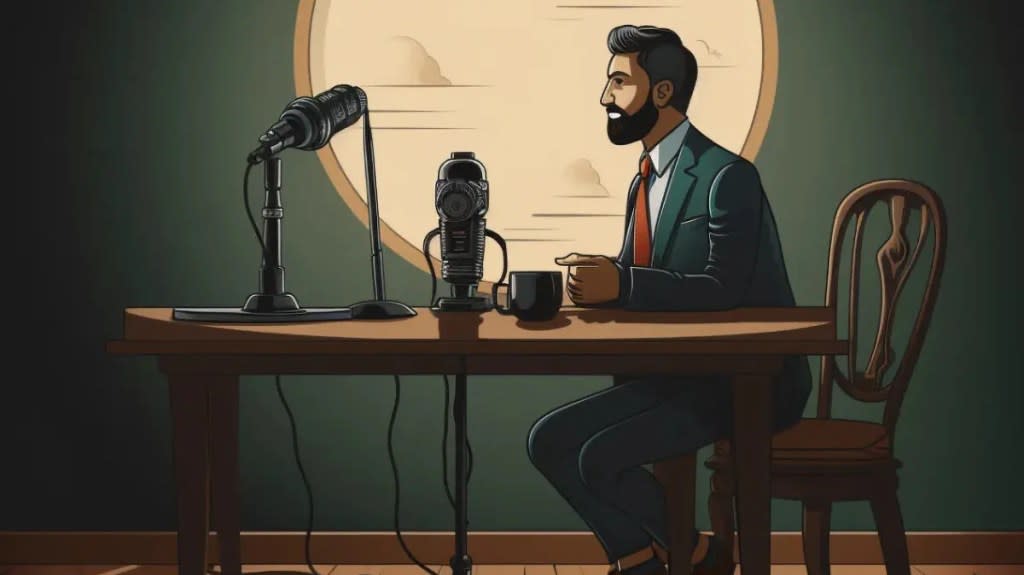Beware of The Fake Podcast Invite Scam

Two weeks ago, a podcast with a “top 1%” audience, whose listener net worth averaged $2.5 million, asked me to join as a guest. The host was familiar with my work, citing a recent CNBC appearance, and seemed ready to hold an engaging conversation. It seemed worthwhile, except the podcast was fake.
With a bit of research — using podcast search engine Listennotes.com — I found no evidence the host had ever spoken on a podcast, let alone hosted one. On YouTube, he had a channel with one video, and one subscriber. And when I asked for a link to his show, he uninvited me. I was probably lucky.
Fake podcast invites, I’ve since learned, are a new ploy that scammers are using to take over your online accounts. The process typically goes like this: Someone invites you to appear on a show, asks you to join a “tech check,” and then takes your credentials during the setup. Instead of a media appearance, you’re left with a nightmare of account recovery.
“That’s nuts. I haven’t heard of that one,” Alex Stamos, chief trust officer at SentinelOne, told me via email. “Podcasts? Is nothing sacred?”
By preying on people’s vanity, or their thirst for exposure, fake podcast invite scams are becoming increasingly more common. After I shared my story on X, a surprising number or people replied with notes saying they — or people they knew — had been targeted by the scam. One influencer, Gabi Tuft, even issued a press release about it last month, saying she’d been asked to join Travis and Jason Kelce’s New Heights Podcast, only to have her credentials stolen by a fake producer.
“After scheduling Tuft’s appearance, the scammer requested to do a pre-interview meeting that was presented as an opportunity to make sure everything would run smoothly,” the release said. “During this meeting, he had Tuft change Facebook settings, which allowed him to clandestinely infiltrate her accounts. Hours after this meeting, Tuft was locked out.”
On X, I heard from Matt Hardigree, publisher of The Autopian, whose colleague was invited to a podcast with no online presence at all. “I spent about five minutes researching it and decided it wasn’t even worth having this person know we had functional email addresses,” he said. The podcast had a similar pitch, offering a chance to share “the journey as a 7-figure entrepreneur.”
Jesse Angelo, former CEO of the New York Post, said he had a “stunningly similar” experience. “Guy invited me on his podcast, I could find zero evidence of the existence of the podcast (despite him saying it was gigantic and important), and he got all weird when I started asking questions about it.”
And after my first encounter with a fake podcast, a second one pitched me. Someone posing as a producer from Barron’s asked me to join one of their shows. The person was based in “Britain,” but sent the message in the middle of the night U.K. time. It was a clear fake, likely trying the same scam. Barron’s did not respond a request for comment.
As podcast prestige — and listenership — has increased, the prevalence of podcast scams has grown as well. That includes fake podcast sets used to hawk products, and mobile game sites that juice download counts via in-game perks. Preying on potential podcast guests to steal their online credentials is just the latest in the genre.
Once I heard from various targets of fake podcast invite scams, I decided to go back to my original host. “Sorry for asking,” I wrote. “But are you doing one of those fake podcasts where you take people’s credentials during the tech setup?”
Shortly afterward, he blocked me.
The post Beware of The Fake Podcast Invite Scam appeared first on TheWrap.


